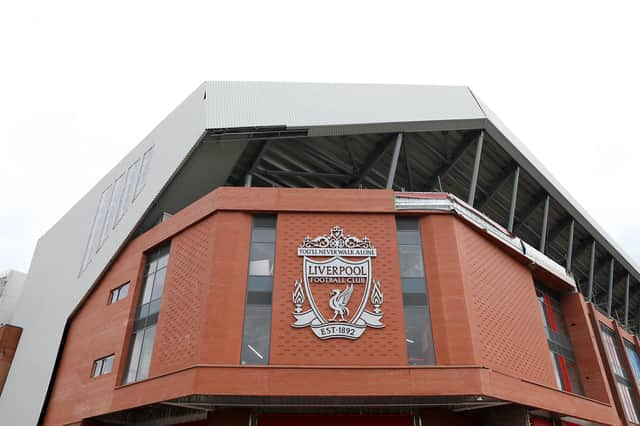'It fits' - finance expert makes Liverpool Middle Eastern takeover claim and outlines FSG plan


Fenway Sports Group (FSG) have 'bigger plans' for Liverpool after agreeing to a minority sale that will allow the club to grow further. That is the verdict of Dr Dan Plumley, a senior lecturer in sport finance at Sheffield Hallam University.
It emerged in November 2022 that FSG had placed the Reds on the market. At the time, it was unclear in the beginning whether the Boston-based group sought a full sale - which led to parties from Qatar, Saudi Arabia, Kuwait, Dubai and India being linked. However, it was soon was outlined that John Henry and Co. were looking to give away just a portion of Liverpool, having purchased the club for £300 million in 2010.
Advertisement
Hide AdAdvertisement
Hide AdLast September, it was confirmed that Dynasty Equity completed a strategic common equity minority investment for between £80-160 million.
Speaking to LiverpoolWorld in association with Grosvenor Sport, Dr Plumley believes that it was a prudent decision. And despite some sections of supporters previously wanting a full takeover from a Middle Eastern party to match the spending of the likes of Manchester City, he insisted that Premier League profit and sustainability rules would not allow Liverpool to have an open chequebook in the transfer market.
Plumley said: "I think it's really interesting, isn't it? And we saw parallels with the takeover at Manchester United as well, didn't we, you know, is it a minority stake? Is it going to be full takeover by Middle East consortium? I think if you look at again, the way FSG have positioned the business over time and you look at their background and the American model of a franchise making money for its owners and seeing the value in it and what are the American owners in particular are looking at is the future value of the club that they've got.
"And with Liverpool's success on the pitch with the commercial appeal, with the amount of fans they've got around the world and how, if you can start to monetise those aspects of the business better, the valuation in time then goes up. I think there's clear evidence that there is going to be growth in the valuation of some of these big clubs.
Advertisement
Hide AdAdvertisement
Hide Ad"So it's those kind of things then that keep the owners interested in the immediate term and that's why I think we've seen in this case a minority investment because those owners have got bigger plans and actually having some other investors in the mix spreads some risk and limits your risk exposure and allows you to grow the business as a whole. Again, if you look at how they've tapped into other aspects of other sports and the connections they've got with other sporting franchises, it becomes a really nice product mix for the owners.
"Fans can look to the Middle Eastern side of things in that regard and think that, you know, one massive takeover there brings with it loads of money and loads of cash. But in the reality of the world of profit and sustainability regulations and that not being able to just open your chequebook anymore, actually for the current owners, I think that's where we see them behave like they have done because it fits with their motives. It fits with the way they run their businesses. It works for them and there’s still growth in Liverpool moving forward. So I think all things considered, that's why we saw a minority stake rather than a full takeover."